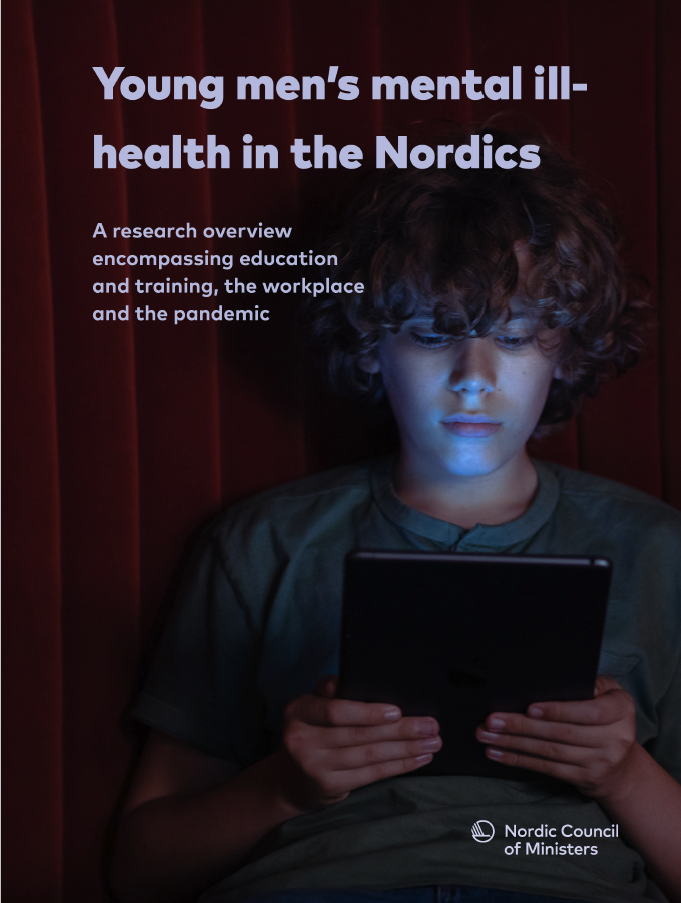Report on the mental health of young men in the Nordic countries
New Nordic report highlights young men’s mental ill-health encompassing education, the workplace and the pandemic.
The research overview point by point
- Mental ill-health and gender: Men find it more difficult to seek help for mental health problems because of masculinity norms and mental ill-health being stigmatised.
- School effects: School closures and distance teaching during the pandemic have negatively affected young people’s well-being and learning, in particular young men.
- Education and training and the workplace: Young men who are neither studying nor working pose a challenge and need individualised support to enter the labour market.
- Effects of the pandemic: The COVID-19 pandemic has had a significant negative impact on young people’s mental health, with increased anxiety and depressive symptoms, especially among young women.
- Physical activity and lifestyle: Physical activity has positive effects on young people’s mental health and performance at work, but many young men reduced their physical activity during the pandemic.
- Gambling addiction and high-risk behaviours: Problematic gambling is more common among young men than young women and has a negative impact on their schooling as well as their working lives.
- Body dissatisfaction: When teenagers feel dissatisfied with their bodies, it affects their school performance and well-being.
- Intervention and support: Early interventions, access to psychosocial support at school, and reducing the stigma around mental ill-health are important measures for promoting young men’s mental health.
Area
Health and
medicine



